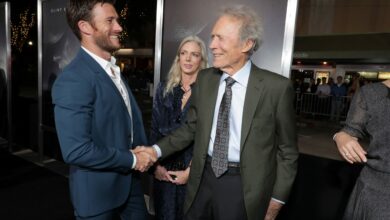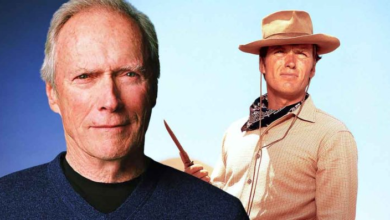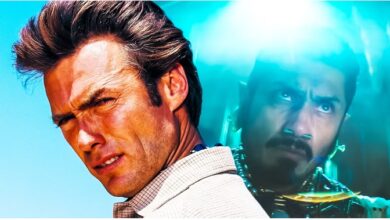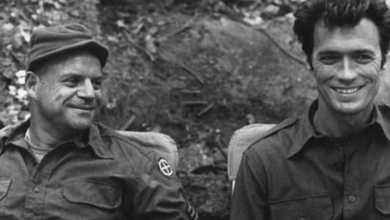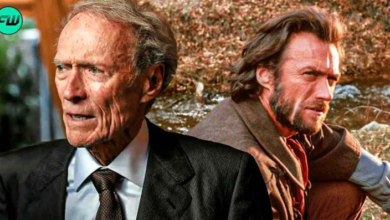Five movie scenes that prove Clint Eastwood is an undisputed genius
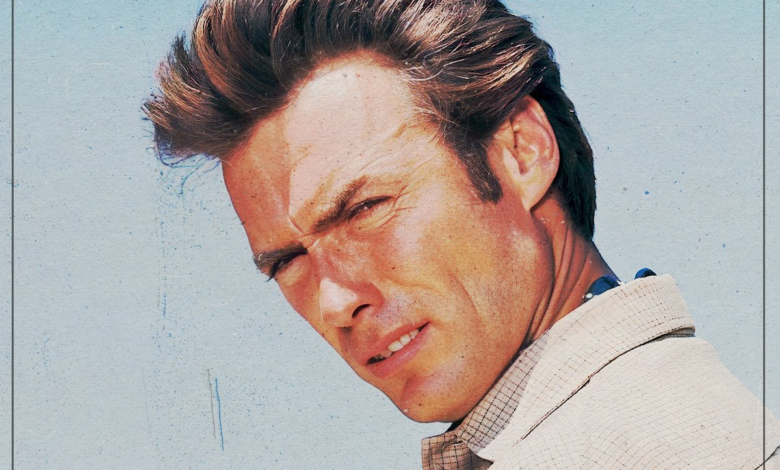
When you think of the western genre, aside from the thudding power of the American icon John Wayne, it is likely that Clint Eastwood comes to mind, with the latter often portraying the nameless, mysterious stranger of the Old West. A distinctive, potent figure of Hollywood allure, Eastwood has been a part of some of the greatest genre flicks of all time, impressing both in front of and behind the camera.
Despite impressing in such movies as Dirty Harry and Escape from Alcatraz, Eastwood will forever be known for his collaborations with the great Sergio Leone, thriving in the director’s Dollars trilogy that spans from 1964 to 1966. As the stylish, European-inspired ‘Man With No Name’, Eastwood magnetised a whole new generation of movie fans to the world of the humble western movie.
Speaking about the role, he once stated in Clint: The Life and Legend, “I wanted to play [The Man With No Name] with an economy of words and create this whole feeling through attitude and movement. It was just the kind of character I had envisioned for a long time, keep to the mystery and allude to what happened in the past. It came about after the frustration of doing Rawhide for so long. I felt the less he said, the stronger he became and the more he grew in the imagination of the audience”.
Thriving in the movie industry since 1955, Eastwood has gone from an icon of the silver screen to one of the most influential names behind the camera, crafting some of the most powerful movies of the 21st century. Explore five scenes below that prove he’s a genius.
Five iconic Clint Eastwood movie scenes:
“Hell is coming to breakfast” – The Outlaw Josey Wales (Clint Eastwood, 1976)
Whenever Eastwood is discussed in the mainstream, his spaghetti western flicks are often praised and highlighted; however, some of his best genre movies were crafted by his hand. 1976’s The Outlaw Josey Wales is a masterpiece of its kind, telling the story of a farmer who joins a Confederate guerrilla troop with Eastwood both in front of and behind the camera.
One of the most iconic scenes in the movie comes when Eastwood’s Josey Wales rides over the top of the hill to save a group of imprisoned locals, waving the white flag to their captors, only to take them out in a flurry of bullets. Impeccably directed, the scene is made iconic by the screenplay from Philip Kaufman and Sonia Chernus, with the line “Hell is coming to breakfast”, uttered by one of the prisoners, going down in cinema history.
Charged with tension, the scene is undoubtedly among Eastwood’s very best.
“Get three coffins ready” – A Fistful Of Dollars (Sergio Leone, 1964)
While there are several genius moments throughout the Dollars trilogy, with the gunfight in The Good, the Bad and the Ugly being one of cinema’s finest ever moments, the most genius piece of Eastwood delivery comes in 1964’s A Fistful Of Dollars. Often seen as the worst of the trio, Leone’s film remains spectacular nonetheless, telling the story of a strange gunfighter who plays two families off against each other in a corrupt town.
The moment in question is when the mysterious Man With No Name enters the film, and the trilogy on the whole, with a violent altercation that perfectly sets his character. Swaggering into the town, he tells the undertaker, “Get three coffins ready”, before marching over to a group of people who insulted him and killing the trio dead. A powerful, intimidating, eccentric and stylish figure, the scene encapsulates everything that makes Eastwood such a genre icon.
“My darling, my blood” – Million Dollar Baby (Clint Eastwood, 2004)
Along with other western icons like John Wayne, James Stewart, and Gary Cooper, Eastwood isn’t really known for his moments of quiet tenderness, but the actor certainly has such acting skills in his repertoire. Such can be seen in abundance in his 2004 ‘Best Picture’ winner Million Dollar Baby, which starred the actor as a boxing coach who agrees to take on the challenge of training the impressively determined young talent, Maggie, played by Hilary Swank.
Yet, this is no Raging Bull. Million Dollar Baby is a heart-wrenching tragedy that speaks to grief, loss and regret, with the culmination of the boxer’s talent being her eventual euthanasia after a life-ending injury. Despite not being known for his dramatic tenderness, Eastwood delivers a powerhouse performance in the scene in question, pulling the tubes from Maggie’s body whilst uttering, “My darling, my blood”.
It’s a genuinely emotionally wrought scene that demonstrates Eastwood’s sheer range as a performer and filmmaker, capturing the moment perfectly.
“Stranger in the Sunset” – High Plains Drifter (Clint Eastwood, 1994)
The most famous scene from the career of Eastwood’s genre peer, John Wayne, is in the John Ford movie The Searchers when his character staggers broken into the sunset of the dusty American West – a broken victim of its wrath. Eastwood replicates this moment, in part, during the conclusion of 1994’s High Plains Drifter, a staggering genre flick that tells the story of a gunfighter who comes to the aid of a small town to help them against incoming outlaws.
After inevitably taking them all out, with a few civilian casualties in the process, Eastwood’s unnamed character eventually heads for the hills at the end of the movie, trotting through the town on his horse to the smiles and stares of the locals. Passing by one of the supporting characters, he’s asked, “I never did know your name”, before Eastwood responds, “Yes, you do”.
A nod back to the legacy of the genre, as well as his iconic Man With No Name character, few scenes better capture Eastwood’s mysterious allure and sheer style as a Hollywood star. He certainly helps himself behind the camera, too, with the final shot being accompanied by some music that makes him seem like a strange natural force of the desert, some sort of inevitable justice.
“We all have it coming kid” – Unforgiven (Clint Eastwood, 1992)
People will often call Eastwood’s Dollars trilogy his very best, or even the action drama Dirty Harry, but for its utter stoicism, foresight and grace, his ‘Best Picture’ winner takes the number one prize. A revisionist western that looks back on the history of the genre and questions the violence and nihilism of the American countryside, Eastwood’s film tells the story of a retired gunslinger who returns for ‘one last job’ alongside a young man, The Schofield Kid, played by Jaimz Woolvett.
While several scenes shine, one in particular stands out, with the moment in question coming when The Schofield Kid, who claims to be an experienced killer, takes the life of his first-ever victim. Crying against a tree in the blustery open plains, he is consoled by Eastwood’s Bill Munny, a wise man with the experience of killing countless outlaws, with the pair sharing a fascinating conversation.
During their dialogue, decades of genre history collide to create something oddly profound and beautiful that speaks to the brutality and futility of taking another man’s life.

